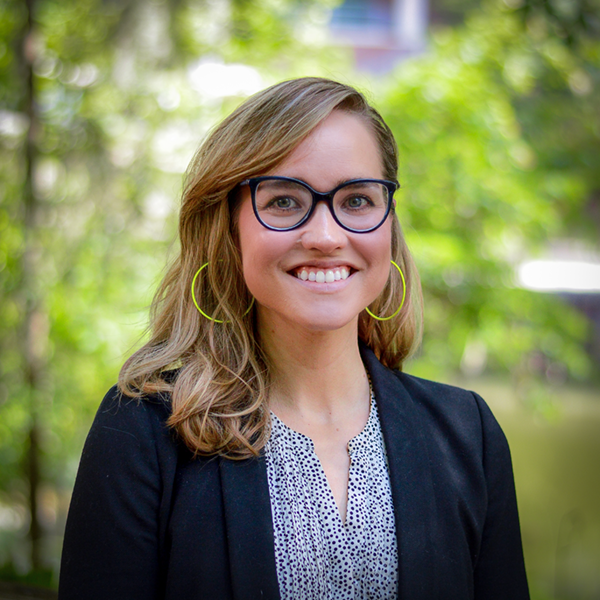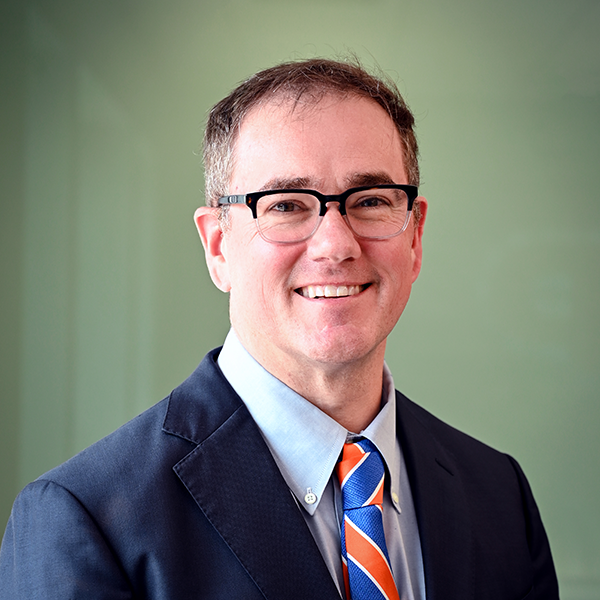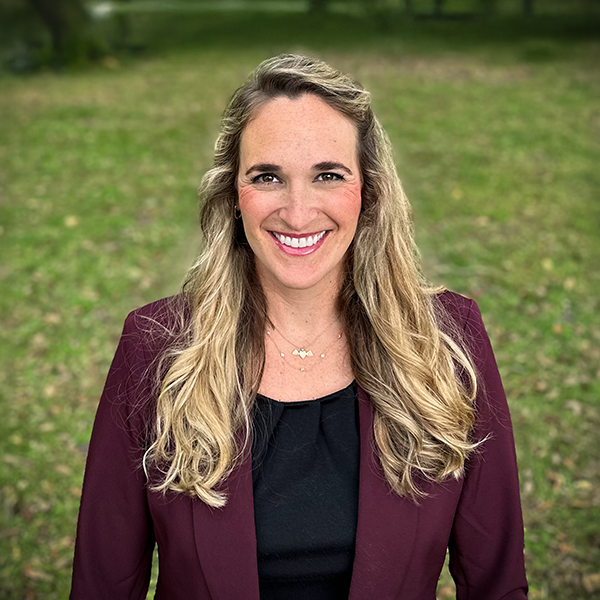Health Education & Behavior M.S.
Take your career to the next level with the University of Florida’s Master of Science (M.S.) in Health Education & Behavior (HEB). You’ll gain the expertise and connections to shape healthier futures—not just for yourself, but for entire communities.
This program is designed to open doors in public health, healthcare, research, industry, and education by building advanced skills in health promotion and behavioral interventions.
As a UF student, you’ll benefit from nationally recognized faculty, innovative research opportunities, and a curriculum that prepares you for leadership roles in community organizations, health agencies, schools, and patient care environments. Graduates are well positioned for doctoral study or professional schools, including medicine and allied health.
Info for Prospective Students
Make an impact in health promotion and disease prevention.
Admissions
Applying for graduate admission to the Master of Science in Health Education & Behavior program is your first step toward a more knowledgeable, successful, and fulfilling future.
Application Deadlines
The department has rolling admissions. To ensure the highest likelihood of a timely review for a particular semester, please submit all application materials to the department by the deadline. We recommend you submit your application as soon as possible rather than waiting until the deadline.
- Spring: November 1
- Summer: April 1
- Fall: July 1
Required Materials
All materials can be included in the online application. GRE scores are not currently required.
- University of Florida Graduate School Application submitted and application fee paid
- Cover letter/statement of purpose describing your areas of professional interest, areas of personal interest and reasons for pursuing a Masters Degree in Health Education and Behavior
- Resume/Curriculum Vitae: Pursuant to Florida Statute, your application requires inclusion of all post-high school education and employment, as well as information about ongoing international affiliations and research funding.
- Three letters of recommendation (PDF):
- At least one letter should come from an academic source (e.g. prior college instructor, academic advisor, etc.). This requirement (academic letter) is waived if the applicant has been out of school for more than five years.
- The remaining letters should come from a professional source with preference for recommendations from someone who knows the applicant in a supervisory role rather than as a peer.
- Letters from family, friends or spiritual leaders are not acceptable.
- Applicants should request that their references comment on the following in their letters of recommendation: written and oral communication skills, competency in health education and behavior, work ethic, analytical skills and problem-solving skills.
- GRE scores are not currently required or reviewed as part of the application.
- For both domestic and international applicants, a health education interest questionnaire will be emailed to the applicant once an application has been submitted. An application will not be considered complete until the online questionnaire responses are submitted.
- A minimum 3.0 GPA for all upper-division undergraduate coursework is required.
- Non-UF Students: Submit official transcripts from all previous colleges attended to the Office of Admissions (201 Criser Hall, PO Box 114000, Gainesville, FL 32611-4000)
- International Students: Submit an official transcript, mark sheets and diploma/degree certificate in the native language from every university or college attended to the Office of Admissions (201 Criser Hall, PO Box 114000, Gainesville, FL 32611-4000). Applicants must also submit certified, literal (exact) English translations for documents not originally issued in English.
- International Students: There is a minimum required score of 80 on the IBT TOEFL or 550 on the PBT TOEFL. Have scores sent to UF institution code 5812.
Application Status
You may submit your application any time before the deadline. Applicants are encouraged to submit supplemental material as soon as possible to avoid a delay in processing.
You can check the status of your application at any time here.
Admissions Decision
Applicants typically receive an admissions decision — accepted or denied — within two weeks of submitting a completed application.
Admitted students will receive further instructions regarding orientation, how to register for courses and required textbooks and materials.
Curriculum
Build expertise in program planning, health communication, and policy to influence health behaviors and outcomes with our career-driven curriculum.
Upon completion of the M.S. graduate program curriculum requirements, students are eligible to register and sit for the national Certified Health Education Specialist (CHES®) examination administered by the National Commission for Health Education Credentialing, Inc. The M.S. degree includes thesis, non-thesis and project in lieu of thesis options. Full-time students can complete non-thesis M.S. options in one year.
The 30-Credit, Thesis and the 30-Credit, Project In Lieu of Thesis options are for students interested in improving their research skills through conducting evaluation projects and empirical studies, as well as pursuing advanced graduate study, particularly the doctoral degree.
Students typically complete these options in about four semesters.
The 30-Credit, Non-Thesis option is for students seeking an advanced practitioner’s degree. A distinctive feature of this option allows students to choose a minimum of 15 credits of HSC elective coursework that matches their personal and professional interests and allows them to plan a program that achieves their goals.
The degree prepares health education specialists to work in local, state and federal health agencies, voluntary health organizations, patient care settings and private industry. The degree also can assist students seeking a competitive edge when applying to graduate and professional schools, particularly in the health professions.
Full-time students can complete this M.S. option in one year.
The 30-Credit, Non-Thesis, Pre-Professional Health Science Track option is for students seeking a career in health care. A distinctive feature of this option allows students to choose a minimum of 12 credits (including 6 credits of undergraduate level courses [3000-4999]) of basic science elective coursework which are prerequisites for dental, medical, nursing, occupational therapy, physician assistant, physical therapy and other health professional programs.
This degree track prepares students who are interested in graduate studies in the health sciences and/or pursing health professional training.
Full-time students can complete this M.S. option in one year.
Designed to fit your needs—choose from online or in-person enrollment. Both formats provide the same high academic standards, but please note that only the 30-credit non-thesis option is available online, while in-person students can select either non-thesis or thesis tracks. This flexibility allows you to pursue your degree in the way that works best for your goals.
70%
Secured Full-Time Employment
Nearly 70% of graduates secure full-time employment upon graduation.
1.7
Student-to-Faculty Ratio
Experience exceptional support with our low student-to-faculty ratio—just 1.7 students for every faculty member—ensuring you receive personalized mentoring and guidance throughout your journey.
70%
Graduate School Acceptance Rate
Almost 70% of graduates who apply to graduate programs in fields beyond HEB are accepted into full-time study.
Career
A master’s in Health Education & Behavior from UF opens doors to meaningful careers where you make a real difference.
Career Growth Projections
Propel your career forward—The Bureau of Labor Statistics predicts nearly 10% job growth for health educators and community health workers from 2022 to 2032, outpacing the national average. This surge highlights expanding opportunities driven by nationwide efforts to improve health outcomes, broaden public outreach, and recruit skilled professionals who can lead impactful health initiatives.
Industry Demand for Skills
Major organizations—including the National Commission for Health Education Credentialing (NCHEC) and the Society for Public Health Education (SOPHE)—recognize the growing demand for professionals with expertise in health program planning, public health communication, data analysis, grant writing, and community engagement. As the field moves toward telehealth and technology-driven solutions, digital health literacy and evaluation skills have become more valuable than ever, making these advanced competencies essential for today’s health leaders.
Where Your HEB Skills Can Take You
Unlock opportunity at every level—employers across industries are looking for the specialized expertise you’ll gain in UF’s HEB MS program:
- Hospitals and healthcare systems: your strengths in patient education, chronic disease management, cultural competence, teamwork, and program evaluation set you apart.
- Public health departments: need professionals skilled in outreach, data analysis, health policy, grant writing, and program coordination.
- Nonprofit and advocacy organizations: value coalition building, digital communication, volunteer management, and impact assessment—precisely the skills you’ll master here.
- Corporations and employee wellness programs: seek graduates equipped for workplace wellness, health risk assessment, coaching, and engagement strategies.
– Kara W., HEB M.S. Student
I love the whole experience. I’m learning so much about human behavior related to health decisions and feel that this is going to be key to my future career opportunities.
Tuition
Compare the cost per credit for in-state, out-of-state or online programs.

Graduate Student Funding Opportunities
Financial Aid
Learn more about financial aid for graduate students.
Federal Loans
Filling out the FAFSA is the first step in receiving federal student aid. Loans are borrowed funds which must be repaid with interest after you are no longer a student. Review details about loans programs available at UF.
Campus Employment
The University lists job openings for which colleges, departments, programs and other UF units are seeking graduate students for hire. View UF job openings.
Grant and Travel Funding Opportunities
National Science Foundation (NSF)
Faculty
Discover the difference that world-class mentorship can make. UF’s Health Education & Behavior faculty are trailblazers in research, community engagement, and innovative teaching. With diverse expertise and a passion for student success, they bring cutting-edge knowledge to the classroom and open doors to real-world opportunities. As dedicated mentors and respected leaders in their fields, our faculty are committed to empowering you to achieve your goals and make a lasting impact in health education.





















